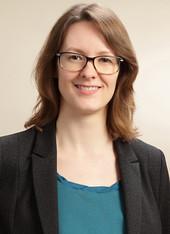Tima Miroshnichenko / Pexels
Public debate in the first half of 2020 was heavily focused on the repercussions of the Corona pandemic; other problems were largely pushed out of the public eye. One could almost forget that between 2015 and the end of 2019, the refugee issue dominated the public debate, with the well-known and sometimes severe repercussions on the political party landscape in Germany.
The results of our survey are:
- On average, Germans without a migrant background are less religious than ethnic German “resettlers” and people with Russian, Polish or Turkish migrant backgrounds. They also pray less often. Religiosity is most pronounced among immigrants of Turkish descent, 82 percent of whom describe themselves as somewhat or very religious and one in two say that they pray daily.
- People with migrant backgrounds tend to exhibit more traditional social attitudes. All the immigrant groups studied have greater reservations about assisted suicide and are more likely to agree that children under three years old should be cared for at home.
- In certain groups, a relationship between religiosity and more traditional attitudes is evident in the case of some attitudes to state and society (e.g., home care for children, lower levels of agreement with assisted suicide, prohibition of abortions). However, the different degrees of religious attachment often cannot explain the differences in attitude between the groups. There are also considerable differences in some attitudes between very religious Germans and very religious migrants, especially from Turkey. Much the same applies for people who are not religious. Religiosity thus has an influence on attitudes, but it is not determi nant for the group differences.
- On questions of democracy and the welfare state, essential basic values are less important to some migrant groups than to Germans without a migrant background: Freedom of expression and of the press are less important to people of Polish descent or of Russian descent than to Germans; among people of Russian descent, this also applies for freedom of religion and freedom of assembly. Freedom of assembly is also less important to late resettlers and people of Turkish descent than to Germans without a migrant background.
- At 90 percent, people of Turkish descent answer most often that freedom of expression is very important to them. This has to be interpreted with a certain degree of caution, however, since respondents were not asked what exactly they mean by freedom of expression. At the same time, 80 percent of people of Turkish descent would like better protection of their faith from insults. It is clear that freedom of expression runs up against limits in this group, when one’s own faith is affected.
- Security is important to all the groups examined. This especially applies for people of Russian descent and people of Turkish descent. In all groups, moreover, dependability, the protection of the environment and nature, and politeness figure among the especially important values. The “classical virtues” of politeness, punctuality, modesty and respecting rules are more important to late resettlers and migrants of Polish, Russian or Turkish descent than to Germans without a migrant background.
- Religiosity tends to reinforce more conservative and social values, especially among Germans without a migrant background, whereas hedonistic and materialist values either are not influenced or are diminished in some groups.
- There is basic tolerance vis-à-vis the different religions, and contact with people of other faiths or attending a celebration in a church or mosque is not rejected. Tolerance is more limited, however, when it is a matter of one’s own family. Above all,people of Polish descent and those of Turkish descent disapprove of the daughter marrying a Jew. In addition, the majority of people of Polish descent disapprove of a Muslim son-in-law and a majority of those of Turkish descent disapprove of a Christian son-in-law. There is a similar response if a family member were to convert. People of Polish descent and late resettlers are sceptical about Islam, above all, but also about Judaism. People of Russian descent are more likely to disapprove of a family member converting to Islam and to Christianity, whereas the majority of people of Turkish descent view conversion to Judaism and to Christianity negatively.
- A clear dividing line between Germans with and without a migrant background is constituted by the attitude to same-sex marriages, which only a small minority of Germans without a migrant background disapprove of. Already among people of Russian descent and late resettlers, nearly one in two disapprove of same-sex marriages. Among people of Turkish descent, there is even a majority of 60 percent that disapprove of same-sex marriages.
Read the full study here as a PDF.




You need to sign in in order to comment.